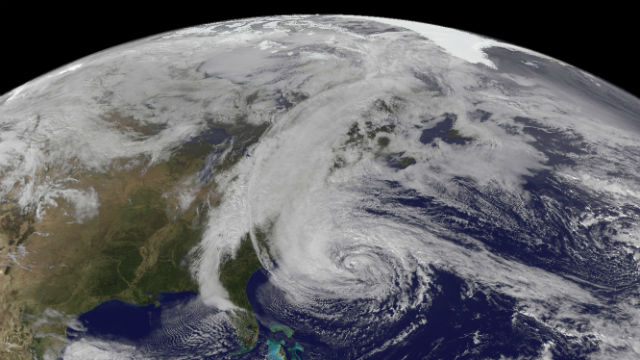Could Sandy Thwart Next Week’s Election?

Yesterday I argued that Hurricane Sandy may enhance President Obama’s prospects for re-election. Today, in the aftermath of the worst storm to hit the eastern seaboard of the United States in 100 years, we cannot be sure the election will be held as planned. We can be certain, though, that tumultuous legal wrangling is just around the corner.
Consider a few facts:
– In 2008, more than 30 percent of voters cast their ballots early; before Sandy came on the radar screen, an estimated 40 percent planned to vote early this year.
– Due to Sandy’s devastation, early voting will be suspended or curtailed in DC, Maryland, Virginia and parts of Ohio and Florida. The latter three are tipping-point states where decreased early voting will almost undoubtedly hurt Obama.
– More than 6.5 million Americans in 13 states and the District of Columbia have no electricity today. This number may expand to 10 million, based on a computer model estimate by Johns Hopkins University engineer Seth Guikema. That’s a full 2-3 percent of Americans who are or will be in the dark in coming days.
– At least 30 percent of Americans are set to use electronic voting machines in next Tuesday’s election.
What will happen if a large swath of the American electorate is unable to vote next week, because they cannot reach the polls or because there is no power at the polling sites? (And will voter turnout take a further hit because so many people are cleaning up from the storm or just getting back to work?) Federal election law seems to make postponing the election impossible, either as a mandate from the federal government or as a decision of individual states. The U.S. Code is clear and free of caveats:
The electors of President and Vice President shall be appointed, in each State, on the Tuesday next after the first Monday in November, in every fourth year succeeding every election of a President and Vice President.
So how did Florida get away with its weeks of inspecting hanging chads in the wake of the fiasco in 2000, when neither Al Gore nor George Bush was declared the winner until the U.S. Supreme Court ruled on the matter on December 12? The answer comes in the next provision of the federal code:
Whenever any State has held an election for the purpose of choosing electors, and has failed to make a choice on the day prescribed by law, the electors may be appointed on a subsequent day in such a manner as the legislature of such State may direct.
This provision gives states leeway to appoint electors after election day provided that they hold their elections on the day prescribed by law. It does not seem to give states license to delay the election itself. But some states have provisions of their own for altering the date of an election in the event of an emergency. Edward Foley counts seven with a statutory scheme for delaying elections: Virginia, Florida, Iowa, Georgia, Maryland, New York and North Carolina. There are some swing states on that list.
Given the controversies that will erupt around legislative tinkering with election day, the stage is set for complex federal and state-level legal battles that may make the Bush-Gore fracas in 2000 look quaint by comparison. Hold your hat on.
Follow Steven Mazie on Twitter: @stevenmazie





